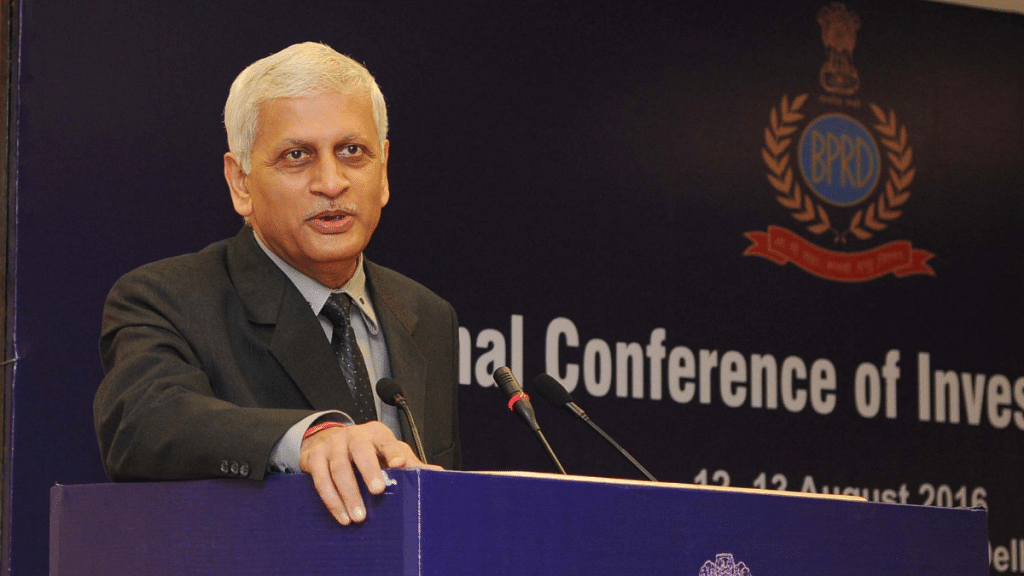New Delhi: Collegium system is indispensable for independence of the judiciary and is here to stay, former Chief Justice of India (CJI) U. U. Lalit said Sunday.
The former CJI also said that it was the government’s prerogative to bring back the law on judicial appointments, if it decides to do so. However, as long as there is no law, the collegium will follow the established mechanism, he added.
Speaking to the media days after his retirement, Justice Lalit admitted that the government’s delay in clearing names of those who are recommended for judgeship was why suitable candidates are reluctant to give their consent for elevation.
The former CJI was responding to questions on the recent Supreme Court order issuing notice to the law secretary, seeking explanation on why the Centre has not cleared names for appointment to certain high courts, despite reiteration by the Supreme Court Collegium.
A bench led by Justice Sanjay Kishan Kaul had remarked that the delay on the Centre’s part was the reason why candidates had withdrawn their consent for their elevation.
Justice Lalit gave the example of a “promising” senior advocate from Bangalore, whose name languished for years with the Centre, forcing him to withdraw his consent. “His [lawyer] patience got over. He wrote a letter to the Collegium withdrawing his consent. The system is deprived of talent,” the retired judge said.
On the constitution of a special bench to hear the National Investigation Agency’s (NIA) appeal against the acquittal of ex-Delhi University professor G. N. Saibaba, who is charged for having Maoist links, the former CJI said there was nothing unusual about the listing of the case on a Saturday.
Specifically, on the selection of judges who heard the matter on a holiday, Justice Lalit explained how it was done. The two judges, he added, were allocated the matter because they were the ones available on that day to hear it.
While the other senior judges already had commitments, the former CJI said, he himself was engaged in writing his judgements that he had to pronounce before retirement.
Saibaba was acquitted by the Bombay High Court on October 14. His acquittal was on technical grounds, but not on merit. On the same day, the NIA had rushed to the top court with its plea against the acquittal.
Solicitor General Tushar Mehta had sought listing of the case on priority and mentioned the matter before a bench led by Justice D. Y. Chandrachud, since CJI Lalit’s bench had risen for the day. The matter was heard on 15 October by a bench of justices M.R. Shah and Bela Trivedi, who put a hold on Saibaba’s release.
The former CJI said that he decided to speak with the judges to allocate the matter to them when the registry told him that a case has to be listed on Saturday for a hearing. He reached out to justices D. Y. Chandrachud, B. R. Gavai, Ajay Rastogi, Ravindra Bhat and Surya Kant. However, all had other commitments.
Only justices Shah and Trivedi were ready to hear the matter Saturday, he said, adding that he had nothing to do with what transpired in the hearing. “At no juncture, did I tell justices M. R. Shah and Bela Trivedi the nature of the matter and who the parties were.”
The former CJI also defended the decision by a bench led by him acquitting three men in the 2012 Chhawla gangrape case. He said the trio was given death penalty on the basis of “circumstantial evidence”.
“These three men got the death penalty on the basis of circumstantial evidence. In this case, the facts and situation did not show such clarity
“If evidence is not strong, then to give the death penalty only because the trial court and high court did so, why should the matter come to the Supreme Court?” the retired CJI said, implying that the case had reached the top court because there were loopholes in the sentencing.
(Edited by Tony Rai)
Also Read: 18 judges’ posts to fall vacant in 2 yrs, SC collegium led by next CJI Chandrachud has task cut out
